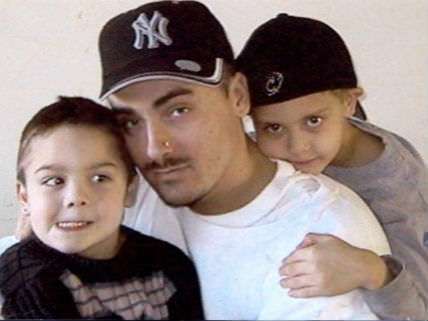New Bipartisan Legislation Would Make Federal Sentences Less Mindlessly Punitive
Bills backed by the chairmen of the House and Senate judiciary committees could help free thousands of drug offenders.

Last week the Senate Judiciary Committee unveiled the Sentencing Reform and Corrections Act of 2015, which Families Against Mandatory Minimums called "the most significant piece of sentencing reform legislation in a generation." Yesterday the House Judiciary Committee unveiled the Sentencing Reform Act of 2015, which includes the same penalty reductions as the Senate bill. In my latest Forbes column, I explain how this legislation can help free thousands of current prisoners and ameliorate future injustices inflicted by the war on drugs:
In 2004 Weldon Angelos, a 25-year-old aspiring music producer in Salt Lake City with two young sons and no criminal record, was sentenced to 55 years in federal prison based on three marijuana sales to a government informant. Each sale consisted of eight one-ounce bags, for which the informant paid $350. So Angelos got more than two years for each ounce he sold, or 19 days for every dollar he received.
That jaw-dropping penalty was triggered by allegations that Angelos possessed a gun during the marijuana sales. Although he never brandished a gun, let alone fired one, mere possession was enough to make him guilty of using a firearm in the course of a drug trafficking offense, a crime for which Congress had prescribed draconian penalties: a five-year mandatory minimum for the first offense and 25 years for each subsequent offense, with the sentences to be served consecutively.
For U.S. District Judge Paul Cassell, the George W. Bush appointee who sentenced Angelos, the math was easy: 5 + 25 +25 = 55. But sending a young, first-time, low-level, nonviolent drug offender to prison for more than half a century, quite possibly for the rest of his life, was not. Calling the penalty "unjust, cruel, and irrational," Cassell urged President Bush to "commute Mr. Angelos' sentence to something that is more in accord with just and rational punishment."
In an interview with ABC News last February, Cassell, who is now a law professor at the University of Utah, expanded on his objections to the sentence he was legally compelled to impose. "If he had been an aircraft hijacker," the former judge said, "he would have gotten 24 years in prison. If he'd been a terrorist, he would have gotten 20 years in prison. If he was a child rapist, he would have gotten 11 years in prison. And now I'm supposed to give him a 55-year sentence? I mean, that's just not right."
Bipartisan legislation that was introduced in the Senate last week and in the House this week would help mitigate injustices like the one that haunts Cassell, bringing a measure of proportionality to a system that sorely needs it. Although the legislation does not move as far in that direction as other bills introduced this year, it stands a much better chance of passing, since it has the backing of Senate Judiciary Committee Chairman Chuck Grassley (R-Iowa) and House Judiciary Committee Chairman Bob Goodlatte (R-Va.). Families Against Mandatory Minimums (FAMM), a group that has been fighting the procrustean prescriptions of federal sentencing laws for nearly a quarter of a century, plausibly calls the Senate bill "the most significant piece of sentencing reform legislation in a generation."


Show Comments (15)